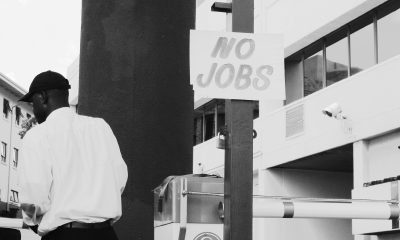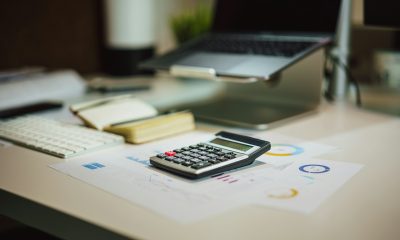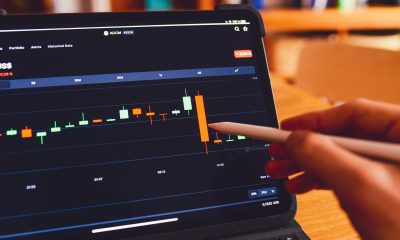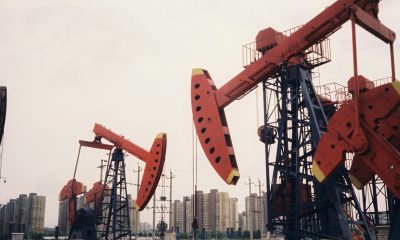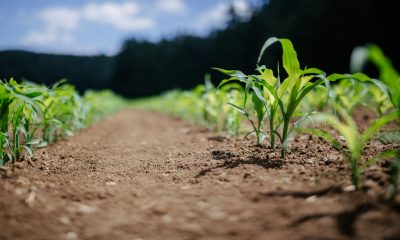Africa
The Tax on Energy Products in Morocco is a Lifeline that the State Cannot Do Without
According to the latest TGR Monthly Bulletin of Public Finance Statistics (April 2022), the import VAT on energy products has increased by 77.9%, representing more than 1.5 MMDH additional collected by the General Treasury of the Kingdom. In addition to the pressure on public finances and soaring commodity and energy prices, the country is facing an agricultural season compromised by drought.
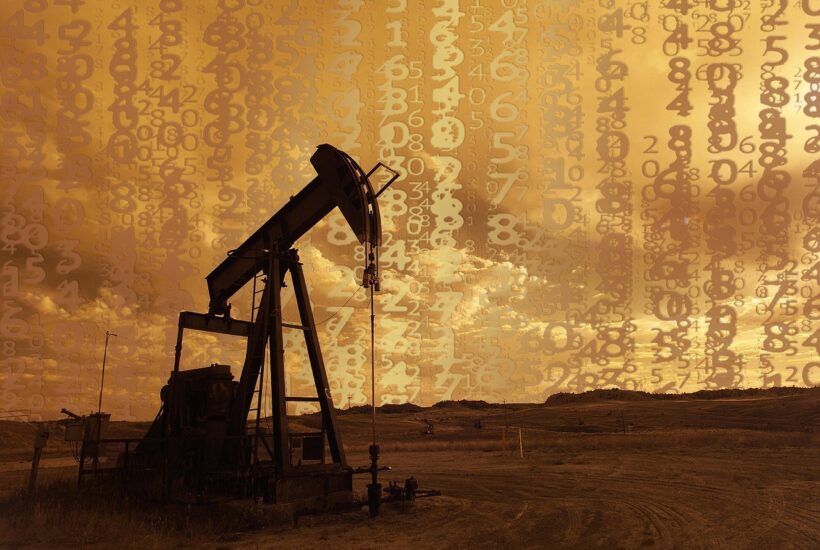
The state continues to recover thanks to the rise in the price of oil against the backdrop of the crisis in Ukraine. But is it enough, and until when, given the tensions that are becoming problematic? Indeed, despite the increase in VAT on imported energy products, the Moroccan economy is on a delicate ridge.
According to the latest TGR Monthly Bulletin of Public Finance Statistics (April 2022), import VAT on energy products has risen by 77.9%, or more than $4.08 million (1.5 billion dirhams) more collected by the Kingdom’s General Treasury, compared to the same period last year.
To get an idea of the spectacular jump, let’s see the other products on which the State collects import VAT. Revenues are up 20.4% at the end of April. The gap is significant! Ditto for March 2022, where VAT revenues on these products recorded an increase of 71.9%, or $100,000 (+1.009 MMDH).
Read more about the Moroccan economy and find the latest economic news from around the world with the Born2Invest mobile app.
Despite the increase in VAT, the Moroccan economy is on a delicate knife-edge
Contacted by Les Inspirations Eco, the economist, Mostafa Labrak, CEO of Energysium consulting and expert in energy and fuels, explains that “VAT on fuels is 10%, so variable. And since it is indexed on the cost price – whose largest component is the international price – it is normal that it increases almost at the same level as fuel prices, mitigated by fixed costs in the price structure. It should be noted that this revenue surplus is unplanned, as the 2022 Finance Law had assumed an oil barrel at $ 80.
For his part, the economist Abdelghani Youmni explains that “VAT revenues have increased because prices have been multiplied by 1.2. When the price of any product increases, VAT revenues follow. That is why, normally, the government must put in place mechanisms that allow redirecting part of these VAT revenues to the social net, including that of transporters, but also to the most vulnerable.”
The significant jump in revenues on imported energy products exceeds 70% since the outbreak of the war in Ukraine, which confirms the accelerating effect of this conflict on the explosion of the price of a barrel of crude oil and fuel at the pump, to the great displeasure of transport professionals and the economy in general. Thus, the double-digit increase in revenues has been crescendoing since April 2021.
As a reminder, the Russian-Ukrainian war was triggered on February 24th, 2022. The increase in import prices leading to those at the pump, the revenue from the ICT on energy products follows the same trend, but not very noticeable because the State proceeds to refunds, rebates, and tax refunds.
In gross terms, revenues from ICT on energy products amounted to $519,743 (5.14 million dirhams) compared with $518,000 (5.18 million dirhams), a very slight drop – not to say stagnation – of 0.8% compared with their level at the end of April 2021 (or -$4.2 million (-42 million dirhams)). Also in March, the government made refunds. Net receipts from the ICT on energy products reached ($380,000 (3.75 million dirhams)), down 1.2% from their level at the end of March 2021 (or -MAD 46), taking into account tax refunds, rebates, and restitutions of ($404,655 (4 million dirhams)) at the end of March 2022, compared with $1.1 million (11 million dirhams) a year earlier.
Regarding the slight decreases observed in ICT revenues, Youmni, explains that “ICT revenues are not decreasing. In fact, they are increasing. But if the state makes refunds, then necessarily, the general treasury will have less.
Another factor to consider when analyzing ICT revenues on energy products is that, according to Labrak, “sales are down compared to the same period last year. There is therefore less revenue collected for the ICT.
In addition, this tax is fixed in the price structure, regardless of the variation, and therefore it depends only on sales volumes. As a reminder, the ICT on diesel is 2.42 DH / liter and 3.76 DH / liter for the super.
The VAT increase on energy products is explained by the increase in fuel prices, linked to the crisis in Ukraine. Indeed, Morocco is on the alert due to the economic consequences of this geopolitical situation. The risks in terms of supply do not seem to be contained, while the increase in gas and wheat prices could have a detrimental impact on public finances. Despite the increase in VAT, the Moroccan economy is on a delicate knife edge. In addition to the pressure on public finances and soaring commodity and energy prices, the country is facing an agricultural season compromised by drought. The behavior of the TIC is indexed to that of the VAT in view of the evolution of the price of imports, except for the tax rebates and refunds made by the Treasury. Already under pressure, the increase in raw material prices seems to be the first tangible consequence of the Ukrainian crisis in Morocco.
Tensions are beginning to become problematic as the war situation in Europe continues. In fact, the crisis is here! Wheat, sulfur, coal, vegetable oil, or oil! The war in Ukraine may well have consequences on our economy. The Moroccan basket will undoubtedly be affected as well as companies and the state budget.
__
(Featured image by Matryx via Pixabay)
DISCLAIMER: This article was written by a third party contributor and does not reflect the opinion of Born2Invest, its management, staff or its associates. Please review our disclaimer for more information.
This article may include forward-looking statements. These forward-looking statements generally are identified by the words “believe,” “project,” “estimate,” “become,” “plan,” “will,” and similar expressions. These forward-looking statements involve known and unknown risks as well as uncertainties, including those discussed in the following cautionary statements and elsewhere in this article and on this site. Although the Company may believe that its expectations are based on reasonable assumptions, the actual results that the Company may achieve may differ materially from any forward-looking statements, which reflect the opinions of the management of the Company only as of the date hereof. Additionally, please make sure to read these important disclosures.
First published in LES ECO.ma, a third-party contributor translated and adapted the article from the original. In case of discrepancy, the original will prevail.
Although we made reasonable efforts to provide accurate translations, some parts may be incorrect. Born2Invest assumes no responsibility for errors, omissions or ambiguities in the translations provided on this website. Any person or entity relying on translated content does so at their own risk. Born2Invest is not responsible for losses caused by such reliance on the accuracy or reliability of translated information. If you wish to report an error or inaccuracy in the translation, we encourage you to contact us.

-

 Impact Investing1 week ago
Impact Investing1 week agoCDP Approves €1.5 Billion Package to Boost Industry, Renewables, and International Development
-

 Crypto2 weeks ago
Crypto2 weeks agoUniswap and BlackRock Partner to Launch BUIDL in DeFi
-

 Impact Investing2 days ago
Impact Investing2 days agoThe Sustainability Revolution: Driving a Net-Zero, Nature-Positive Economy
-

 Biotech1 week ago
Biotech1 week agoNew Molecular Clues Explain Aggressive Neuroblastoma and Point to Targeted Treatments
